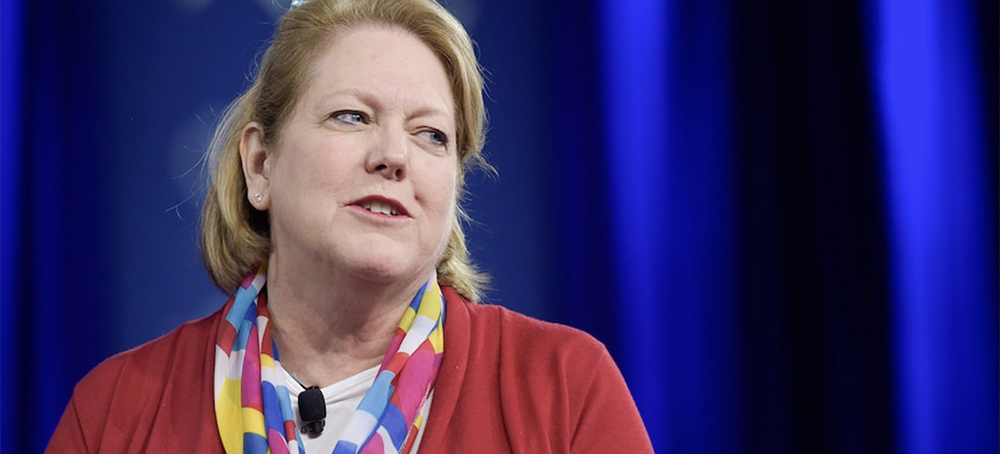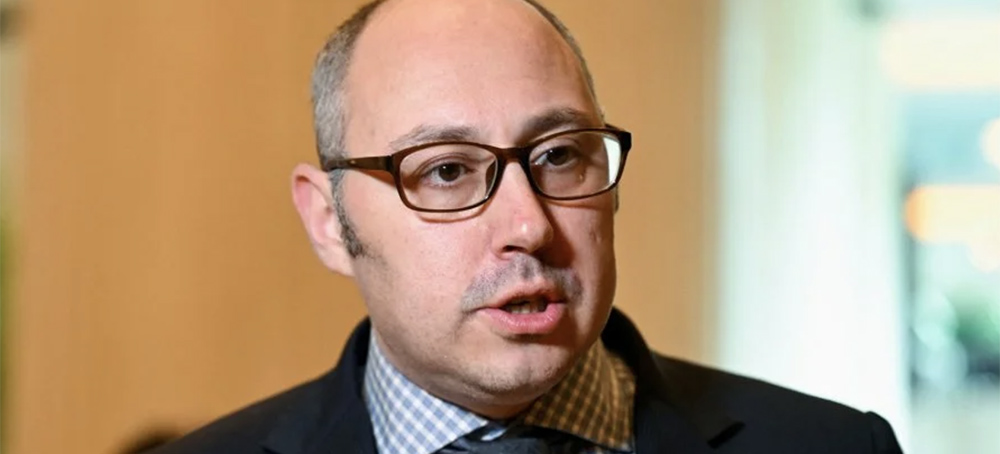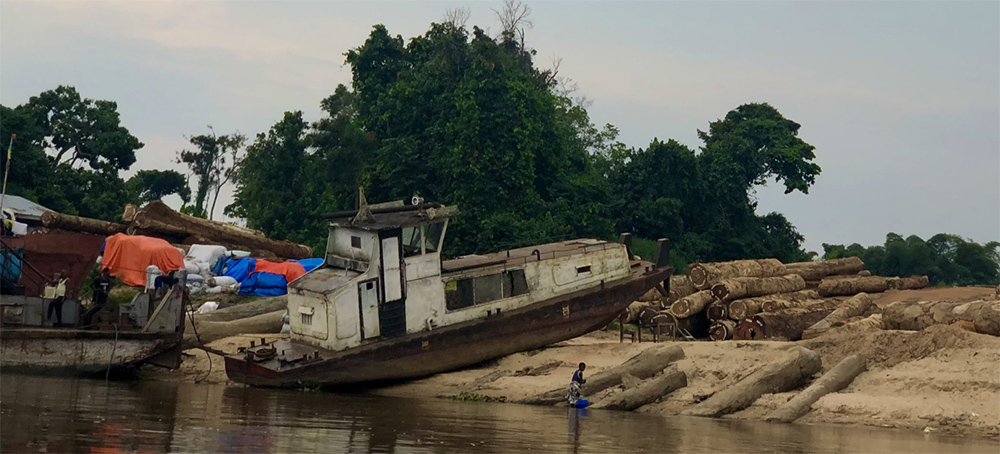Live on the homepage now!
Reader Supported News
‘Is guaranteeing healthcare to all people socialistic?’ senator asks Lindsey Graham in stellar defense of political philosophy
Sanders, the Vermont senator, democratic socialist and two-time presidential candidate, took on Lindsey Graham, his Republican Senate colleague from South Carolina.
Sanders gave an unfettered breakdown of Medicare for all, or a national public healthcare system, a living wage, and increasing taxes on the wealthiest Americans.
For Fox viewers it was a rare opportunity to hear a different perspective on policies which are regularly demonized by rightwingers Tucker Carlson and Sean Hannity, Fox News’ two most watched hosts.
For Sanders, it was a chance to reach a new audience, and he wasted no time before diving into a signature issue – universal healthcare.
“In the United States, Lindsey, we spend twice as much per capita on healthcare compared to the people of any other country, while major countries like Canada, the UK, Germany manage to supply healthcare to all their people,” Sanders said.
“Why is that?” he continued. “Because they’re not having insurance companies ripping off the system.”
Several polls have shown that a majority of Americans support Medicare for all, despite the Republican refrain that much of the US public is thrilled with their private health insurance.
“The real question is what the American people want. And you know what the American people do want? They do want Medicare for all,” Sanders said.
Bernie Sanders absolutely obliterating Lindsey Graham in this debate opener pic.twitter.com/K0N1JrfFV3
— Mac (@GoodPoliticGuy) June 13, 2022
Medicare is the US government’s national healthcare system for seniors, and progressives want to expand its coverage to all and abolish private health insurance.
“You talk about the joys and beauties of private insurance. Talk to the millions of workers who lost their private insurance during Covid,” Sanders said to Graham.
Graham ran for the Republican nomination for president against Donald Trump in 2016 and was a sharp critic of Trump’s – then became one of his most ardent defenders, although the relationship between the pair has since soured.
He accused Sanders of being out of touch.
“America deserves better than this. We can do better than this but the path charted by Senator Sanders is full-on socialism,” Graham said, after a conversation about gas prices and rising inflation.
“And it’s not going to fix America. We are not a socialist nation. There is a better way, I promise you this.”
Graham did not give specifics on his better way.
“If I’m chairman of any committee, hopefully the budget committee, I’ll sit down with Democrats and Republicans and find a way to fix our national debt,” he said.
After being criticized by Graham for being a “socialist”, Sanders leaned into the political philosophy and offered an ardent defense.
“Do you think raising the minimum wage to $15 an hour is socialistic? Do you think doing what every major country does – guaranteeing healthcare to all people – is socialistic? Do you think expanding Medicare to cover dental care is socialistic?” Sanders said.
Sanders had previously appeared on Fox News for a “town hall” style event during his 2020 presidential campaign. That time, to the surprise of many, he was applauded by the Fox News live audience several times as he explained some of his progressive policy ideas.
Monday’s debate came after a bipartisan group of senators announced they had come to a tentative agreement over minor potential gun control measures.
A plan announced by Chris Murphy, a Democrat, and John Cornyn, a Republican, and supported by at least 10 Republican senators, would increase funding for school safety and mental health programs, and expand background checks for gun buyers under 21.
The bill would not, however, ban assault-style weapons or even raise the age limit to buy them – something advocates for greater gun control insist is necessary.
During the debate Sanders gave his tentative support to the legislation, but said it did not go far enough. It was time, Sanders said, for Congress to “stand up to the power of the NRA and pass real gun reform legislation”.
“I come from a rural state. And you know, most people do not use AR-15s to hunt deer. These are weapons, military-type weapons, designed to kill people as quickly as possible,” Sanders said.
“And as a nation we have to decide whether it is appropriate to do what virtually no other major country does: allow somebody to walk into a gun store and buy one of these weapons.”
Graham said he had taken a different lesson.
“You know, after New York, after Buffalo and after the shooting in Texas there’s a common thing: very disturbed people getting guns and doing terrible things with them,” Graham said.
Graham said he owns an AR-15, adding: “If you ever have to defend yourself, maybe a double barrel shotgun at your house if everything breaks down and the mob’s coming, [is] not enough. We’re not going to ban assault weapons.”
Sanders and Graham unsurprisingly found little common ground, although they agreed change was required.
“You’ve got to get new people in Washington,” said Graham, who has been in Congress for more than 26 years.
Sanders offered a bigger vision.
“I think most people, frankly, will tell you what they tell me: that the Congress is way, way out of touch with the needs of the American people,” Sanders said, adding: “We have a corrupt political system dominated by wealthy campaign contributors.”
 Ginni Thomas, wife of Supreme Court Justice Clarence Thomas, speaks at a conference in 2017. (photo: Susan Walsh/AP)
Ginni Thomas, wife of Supreme Court Justice Clarence Thomas, speaks at a conference in 2017. (photo: Susan Walsh/AP)
The Post reported last month that Thomas sent emails to two Arizona House members, in November and December 2020, urging them to help overturn Biden’s win by selecting presidential electors — a responsibility that belongs to Arizona voters under state law. Thomas sent the messages using FreeRoots, an online platform intended to make it easy to send pre-written emails to multiple elected officials.
New documents show that Thomas indeed used the platform to reach many lawmakers simultaneously. On Nov. 9, she sent identical emails to 20 members of the Arizona House and seven Arizona state senators. That represents more than half of the Republican members of the state legislature at the time.
The message, just days after media organizations called the race for Biden in Arizona and nationwide, urged lawmakers to “stand strong in the face of political and media pressure” and claimed that the responsibility to choose electors was “yours and yours alone.” They had “power to fight back against fraud” and “ensure that a clean slate of Electors is chosen,” the email said.
Among the lawmakers who received the email was then-Rep. Anthony Kern, a Stop the Steal supporter who lost his reelection bid in November 2020 and then joined U.S. Rep. Louie Gohmert (R-Tex.) and others as a plaintiff in a lawsuit against Vice President Mike Pence, a last-ditch effort to overturn Biden’s victory. Kern was photographed outside the Capitol during the riot on Jan. 6 but has said he did not enter the building, according to local media reports.
Kern did not immediately respond to a request for comment Friday. He is seeking his party’s nomination for a seat in the Arizona state Senate and has been endorsed by former president Donald Trump.
On Dec. 13, the day before members of the electoral college were slated to cast their votes and seal Biden’s victory, Thomas emailed 22 House members and one senator. “Before you choose your state’s Electors … consider what will happen to the nation we all love if you don’t stand up and lead,” the email said. It linked to a video of a man urging swing-state lawmakers to “put things right” and “not give in to cowardice.”
Speaker of the House Russell “Rusty” Bowers and Rep. Shawnna Bolick, the two recipients previously identified, told The Post in May that the outreach from Thomas had no bearing on their decisions about how to handle claims of election fraud.
But the revelation that Ginni Thomas was directly involved in pressing them to override the popular vote — an act that would have been without precedent in the modern era — intensified questions about whether her husband should recuse himself from cases related to the 2020 presidential election and attempts to subvert it. Ginni Thomas’s status as a leading conservative political activist has set her apart from other spouses of Supreme Court justices.
Ginni Thomas did not respond to requests seeking comment for this report. She has long insisted that she and her husband operate in separate professional lanes.
A spokeswoman for the Supreme Court did not respond to questions for Clarence Thomas.
The Post obtained the emails under Arizona’s public records law, which — unlike the laws in some other key 2020 swing states — allows the public to access emails, text messages and other written communications to and from state lawmakers.
In March, The Post and CBS News obtained text messages that Ginni Thomas sent in the weeks after the 2020 election to Mark Meadows, then Trump’s chief of staff. The messages showed Thomas spreading false claims and urging Meadows to keep fighting for Trump to remain in the White House.
“That conflict of interest just screams at you,” said Adam B. Schiff (D-Calif.), who serves on the House committee investigating the Jan. 6 attack on the Capitol, on MSNBC in response to The Post’s May report revealing the emails to Bolick and Bowers.
Schiff pointed to Clarence Thomas’s decision not to recuse when Trump went to the Supreme Court to try to block the House committee from getting access to his White House records. The high court declined to block the release of those documents. Thomas, siding with Trump, was the only justice to dissent.
“Here you have the wife of a Supreme Court justice,” Schiff said, trying to “get Arizona to improperly cast aside the votes of millions. And also, to add to it, her husband on the Supreme Court, writing a dissent in a case arguing against providing records to Congress that might have revealed some of these same e-mails.”
After the May article, Mark Paoletta — a longtime ally of the Thomases who, as a member of the George H.W. Bush administration, played a role in the confirmation of Clarence Thomas to the Supreme Court — confirmed that Ginni Thomas signed the emails, but he sought to minimize her role.
“Ginni signed her name to a pre-written form letter that was signed by thousands of citizens and sent to state legislators across the country,” Paoletta wrote on Twitter on May 20. He described Thomas’s activities as “a private citizen joining a letter writing campaign” and added, sarcastically, “How disturbing, what a threat!”
The letter-writing campaigns were organized on FreeRoots.com, which advertised itself as a platform to amplify grass-roots advocacy across the political spectrum. A Post review of its archived webpages shows that it was heavily used in late 2020 by groups seeking to overturn the presidential election results.
One of those groups was Every Legal Vote, which organized the campaign to send the message that Ginni Thomas sent on Nov. 9. In those first days after the Nov. 3 election, Every Legal Vote described itself online as a “labor of love by American citizens, in partnership” with the nonprofit United in Purpose, according to webpages preserved by the Internet Archive’s Wayback Machine. United in Purpose, which harnesses data to galvanize conservative Christian voters, in recent years hosted luncheons where Thomas presented her Impact Awards to right-wing leaders.
On Dec. 14, 2020, Biden electors in Arizona cast their votes, after the election results were certified by Secretary of State Katie Hobbs (D) and Gov. Doug Ducey (R).
Trump electors met in Arizona that day and signed a document declaring themselves the state’s “duly elected and qualified Electors.” One of them was Kern, the outgoing state representative.
Kern was among more than a dozen lawmakers who signed on to a letter to Congress that same day calling for the state’s electoral votes to go to Trump or “be nullified completely until a full forensic audit can be conducted.”
The lawmakers’ letter was an exhibit in Kern and Gohmert’s lawsuit asking a federal court to rule that Pence had the “exclusive authority and sole discretion” in deciding which electoral votes to count for a given state. The plaintiffs asked the Supreme Court to intervene after the case was dismissed in lower courts. The day after the Jan. 6 insurrection, the court declined in an unsigned order.
 An Amazon Labor Union rally in Staten Island in April. (photo: Calla Kessler/WP)
An Amazon Labor Union rally in Staten Island in April. (photo: Calla Kessler/WP)
 Ukrainian Deputy Foreign Minister Dmytro Senik. (photo: Caroline Chia/Reuters)
Ukrainian Deputy Foreign Minister Dmytro Senik. (photo: Caroline Chia/Reuters)
excerpt:
Ukraine is the fourth largest exporter of grain in the world. At the moment there is about 30 million tons of grain stored in Ukraine, which the government is attempting to export via road, river, and rail transport.
Russia is deliberately preventing sea-based exports by blocking Ukrainian ports and sea routes in the Black Sea, as well as launching missile attacks on grain elevators and rail infrastructure.
The Kremlin seeks to provoke famine in African countries, which will lead to a wave of migration to Europe, forcing EU countries to contend with more waves of migrants. Kremlin officials gave demanded that the sanctions imposed on the Russian Federation for the war in Ukraine be lifted in exchange for the unblocking of Ukrainian ports. Some countries, such as the United States, have categorically refused this demand.
 Family and friends carry the coffin of Al Jazeera reporter Shireen Abu Akleh, who was killed during an Israeli raid in Jenin in the occupied West Bank. (photo: Ammar Awad/Reuters)
Family and friends carry the coffin of Al Jazeera reporter Shireen Abu Akleh, who was killed during an Israeli raid in Jenin in the occupied West Bank. (photo: Ammar Awad/Reuters)
But this does not mean there is no hope. There is.
An entire month has passed, but many of us in Palestine are still struggling to accept that Shireen is no longer with us, that she is no longer here to give a voice to our struggle, that we will never hear her iconic sign-off – “Shireen Abu Akleh, Aljazeeeera, Filasteen” – ever again.
As I try to process this immense loss, as I count the days since I received that initial notification about her death, I repeatedly ask myself: Are we getting any closer to achieving justice for Shireen?
Sadly, one month on, the answer to this question is a resounding “no”.
Indeed, justice for Shireen is still as distant as it has always been – as distant as it always is for every single one of the Palestinian victims of Israel’s decades-long systematic and murderous violence.
But this does not mean there is no hope.
There is.
Shireen’s killing mobilised the Palestinian streets in ways I have never seen before.
Her funeral was one of the longest, and best-attended, in the recent history of Palestine – it spanned three days and approximately 100km (62 miles). People from all corners of our occupied and violated homeland rose up to pay their respects and demand justice for Shireen.
Shireen’s coffin was first carried across the Jenin refugee camp, where she was murdered, before making its way to al-Najah National University in Nablus for a ceremonial military funeral.
In Ramallah, mourners took to the streets to bid her farewell long before the beginning of the official ceremony at Al-Muqata’a, the presidential headquarters. In Jerusalem, the streets were filled with thousands carrying Palestinian flags in her honour. Despite the brutal violence inflicted on mourners by Israeli occupation forces, Jerusalemites persevered and remained locked together for hours to make sure the city Shireen loved the most showed her the respect she deserved.
Shireen was the daughter of Jerusalem, the daughter of Palestine. She spent a lifetime telling the true story of this land to the world. And even in her death, she managed to bring us all closer together, and increase our commitment to our struggle for freedom, dignity and justice.
None of us expects the Israeli forces who murdered Shireen to admit to their crime or seek atonement. None of us is naive enough to believe her killers – not only those who pulled the trigger, but also those who created the conditions for her assassination – will be held to account for what they did to her, and the Palestinian people.
But the outpouring of love and solidarity Shireen’s murder triggered in Palestine still gives me hope that despite all the brutality inflicted on us by the Israeli occupation, Palestinians are moving together towards building a better future and finding freedom.
As expected, Israel first lied about what happened in Jenin on the morning of May 11, 2022, and then refused even to investigate what we all know was a cold-blooded assassination of a journalist on duty, citing “political complexities”.
We had testimonies by several Palestinian journalists and witnesses, plenty of video evidence, and lots of experts weighing in. They all agreed that it was Israeli fire that killed Shireen. CNN went even further and after analysing all the available evidence, all the possible scenarios, all the bullet markings left at the scene, concluded that Shireen was killed in “a targeted attack” by Israeli forces.
But no evidence in the world was enough to stop the Israeli propaganda machine. Israel continued with its campaign to muddy the waters and gaslight Palestinians. It kept claiming that it is not possible to know what happened, that even if it was an Israeli bullet that killed Shireen, it was somehow the fault of Palestinians.
And people believed these lies. Or at least chose to parrot them back because it was politically convenient to do so. Even America’s so-called “paper of record” recently claimed that “the world still knows very little about who is responsible for [Shireen’s] death”.
This is, of course, a lie. The world knows who is responsible for her death. Israel knows who is responsible for her death. And, most importantly, we Palestinians know who is responsible for her death.
Shireen was killed by Israel. She was killed for doing her job. She was killed because she was a journalist telling the story of Palestine. She was killed because she wanted to give a voice to the residents of Jenin and all the other Palestinians brutalised by Israel’s occupation forces.
There may be no justice in sight. But even in death, Shireen is giving us hope. Her legacy is strengthening our resolve to carry on with the fight. Her memory is encouraging budding journalists across Palestine to continue her mission and expose the ugliness of Israel’s occupation.
Since the killing of Shireen on May 11, Israeli forces have killed 12 other Palestinians in the occupied West Bank alone. This number includes 18-year-old Thaer al-Yazouri, killed in al-Bireh, near Ramallah; 17-year-old Amjad al-Fayed, killed in Jenin refugee camp; 16-year-old Ghaith Yamin, killed in the city of Nablus; 15-year-old Zaid Ghneim, killed in Bethlehem; 17-year-old Odeh Odeh, killed in the village of al-Midya near Ramallah.
I am listing their names because, just like Shireen, these young Palestinian lives lost to senseless Israeli fire also deserve justice.
Israel will continue to do everything it possibly can to muddy the waters, to try and gaslight Palestinians into thinking that it is not Israel that is responsible for the deaths of Shireen, Thaer, Amjad, Ghaith, Zaid, Odeh and countless other Palestinian innocents.
Justice for them may not be in sight, but after witnessing the outpouring of love and solidarity that followed Shireen’s murder, and experiencing how each Israeli bullet that takes a Palestinian life strengthens the Palestinian resolve to resist, to remember and to fight on, I am more hopeful for the future today than ever before.
Some media outlets claim one month after Shireen’s assassination there is “relative calm” today in Palestine. But there is no “relative calm” for Palestinians living under Israel’s brutal occupation. We are all bound by our duty to Shireen and others we lost to Israel’s senseless violence to resist, to speak our truth, to keep fighting.
 Timber awaits transportation to market in Norsudtimber's concession. (photo: Gloria Pallares/Mongabay)
Timber awaits transportation to market in Norsudtimber's concession. (photo: Gloria Pallares/Mongabay)
As timber is exported to the EU and the US, UNESCO prepares an audit to try to salvage Yangambi and DRC’s other MAB reserves
Some of them are plotting routes for a large-scale biodiversity survey. Others are climbing a metallic structure the size of a 20-story building, the first of its kind in the Congo Basin. The flux tower measures the exchange of greenhouse gasses between the atmosphere and the ecosystem, providing precious insights into the climate role of the Congo forest, whose trees store a third more carbon per hectare than the Amazon.
In the neighboring Ngazi forest, scientists such as Jonas Kambale are also busy monitoring species that once used to abound in Yangambi. “This forest is a wildlife reservoir,” he said. “If we want the Yangambi Biosphere Reserve to be viable, we can’t forget Ngazi.”
The isolation of this tract of forest has sheltered large mammals such as okapi (Okapia johnstoni) and chimpanzees (Pan troglodytes) from human pressures in a country with one of the highest population growth rates on the planet. But timber transport roads planned for 2024 may change that, as they open up a largely inaccessible area to commercial hunting, charcoal making and slash and burn agriculture, a leading cause of deforestation in the world’s second-largest rainforest.
This ecological haven is connected to the Yangambi UNESCO Man and Biosphere Reserve in northeastern DRC — one of the first of its kind and a prime site for climate and biodiversity research. However, the Ngazi forest now finds itself home to an industrial logging concession.
The concession belongs to a subsidiary of the Lichtenstein-registered Norsudtimber group, which recently converted most of its logging titles into conservation concessions for the sale of carbon credits. Official data shows they have sold timber in the US and are one of the three top exporters of Afrormosia (Pericopsis elata) into Belgium, the main gateway for this endangered tree species into the EU.
Northern DRC is rich in Afrormosia, a prized hardwood whose EU trade is being scrutinized in view of irregularities in export quotas recently flagged by EL PAÍS/Planeta Futuro. Europe is the world’s leading donor for Congo forest conservation and member of a 12-donor group that has pledged to disburse $500 million for that purpose in the next five years.
As the DRC prepares to receive millions in donor money for forest conservation, official documents and data show the DRC environment ministry authorized the logging concession to alter its limits, in spite of a 20-year moratorium on new industrial felling contracts. Officials then approved the upcoming opening of timber transport roads in Ngazi forest, a wildlife corridor the ministry itself had described as an integral part of the Yangambi UNESCO Man and Biosphere Reserve. Preparations to log in the area are due to start next year.
Shifts in concession limits
The first warning about the change of the concession limits appears in the management plan that WWF drafted in 2011, the same year the contract for the concession, known as 042/11, was signed. The author of the plan was a forestry expert who shortly thereafter became the secretary general of the environment ministry and who holds a high position to this day.
According to the document, the ministry had awarded loggers the northern part of the Yangambi reserve and most of what the document describes as the Ngazi forest reserve, an adjoining area suited to scientific research. At the time, the overlapping area covered 53,628 hectares (132,000 acres). “Such an act reinforces the position of local actors who consider themselves entitled to shamelessly plunder the reserves’ natural resources,” the WWF planning document reads.
Only three years later, in 2014, concession 042/11 had to reduce its size to abide by the maximum allowed area of 300,000 hectares — and the company took that opportunity to further shift the concession boundaries towards the biosphere reserve, totally engulfing Ngazi forest. The move was authorized by the environment ministry.
“To push a concession beyond its original boundaries, you’d have to write a new contract, but that would breach the moratorium on new industrial logging titles,” a Congolese lawyer who works on forest governance issues said, speaking on condition of anonymity. “On top of that, communities have ancestral rights over their forests, so the government can’t allocate land to private entities without a public inquiry.”
Falling off the map
In 2015, one year after the limits of concession 042/11 had been altered, the ministry and the IUCN published the General Management Plan for the Yangambi Biosphere Reserve, building on WWF’s work.”The Ngazi forest reserve…is an integral part of the Yangambi Biosphere Reserve,” the document notes.
This inquiry reviewed the 25-year management plan for concession 042/11, approved in 2018. It acknowledges work done by IUCN and WWF, but avoids mentioning Ngazi despite the situation having been featured in reports for years.
The $374,000 plan was produced by French firm FRM under the auspices of AGEDUFOR, a major project funded by the French Development Agency that ran through 2019. Its objective was to advance sustainable forest management in the DRC.
“How consultants could draft such a plan and how the Environment Ministry could approve it after consultation, is a mystery to me,” says an expert in forest policy from the DRC, speaking on condition of anonymity to protect his engagement with the authorities.
Another cause for concern are the limits of the Yangambi Biosphere Reserve as depicted on the current DRC Forest Atlas. They do not match any historical maps. The tool was produced by a non-profit with data provided by the environment ministry and the financial support of USAID, UKAid and Norway.
Those limits make the overlap with the other land uses appear irrelevant — especially since the Atlas features the old perimeter of concession 042/11, before it moved towards the reserve.
The map has since made its way into the observatory of the Central African Forests Commission (COMIFAC) and the management plans of logging concessions such as 042/11 — plans that open the door to exporting trees regulated by CITES, such as Afrormosia.
Review in the works
Noeline Raondry Rakotoarisoa, UNESCO’s director responsible for its African network of reserves, is one of the world’s leading experts on Man and Biosphere Reserves. “Ngazi forest is an important biodiversity reservoir that could eventually help repopulate surrounding areas, and we must ensure it maintains this function,” she said, adding that Ngazi provides large mammals with a wildlife corridor that allows them to move about the landscape and maintain healthy, viable populations. It also acts as a buffer, sheltering the core of the Yangambi Reserve from human encroachment.
Raondry said UNESCO will oversee a review of the reserve zoning conducted by WWF in 2011. “There is no point in protecting places that have been completely destroyed.”
The UNESCO representative also told us an audit will be conducted to determine which DRC institutions are best suited to manage the country’s three Man and Biosphere Reserves. Consultants are expected to start work on the audit in September.
“We want to position Biosphere Reserves as an example of land-use planning and sustainable development,” she said. As things stand, industrial logging concessions have been overlapping with hunting domains and there have even been plans to auction oil blocks in national parks.
In the case of Yangambi, the 2015 management plan has never been implemented, mostly due to poor institutional coordination and governance. In the meantime, a booming population with few livelihood alternatives has been increasingly turning to the reserve for survival.
Some people travel as far as 25 miles (40 kilometers) to exploit natural resources in the reserve. They mine gold, log trees to make canoes, and burn patches of forest to establish temporary, low-yield cassava fields. They also shoot small mammals for urban wildlife markets. The biggest mammals only survive in Ngazi forest.
“No raincoats, no means of transportation, no budget, no clear reserve boundaries; what can we do?,” Tabine Assimbu, an agronomic engineer, asked. “Also, locals need livelihood alternatives; otherwise, what can they do?”
Sodefor, Norsudtimber’s parent company, said it was not aware of the documentation showing Ngazi was an “integral” part of the biosphere reserve. They also said the company was not routinely consulted for such reports.
“But we are in contact with stakeholders… to contribute to the Yangambi Biosphere Reserve and its biodiversity objectives,” a Sodefor spokesperson said.
The environment ministry did not respond to requests for comment sent by email. The French consulting firm FRM also did not respond.
This article was originally published on Mongabay.
Special Coverage: Ukraine, A Historic Resistance
READ MORE
Follow us on facebook and twitter!
PO Box 2043 / Citrus Heights, CA 95611


No comments:
Post a Comment
Note: Only a member of this blog may post a comment.